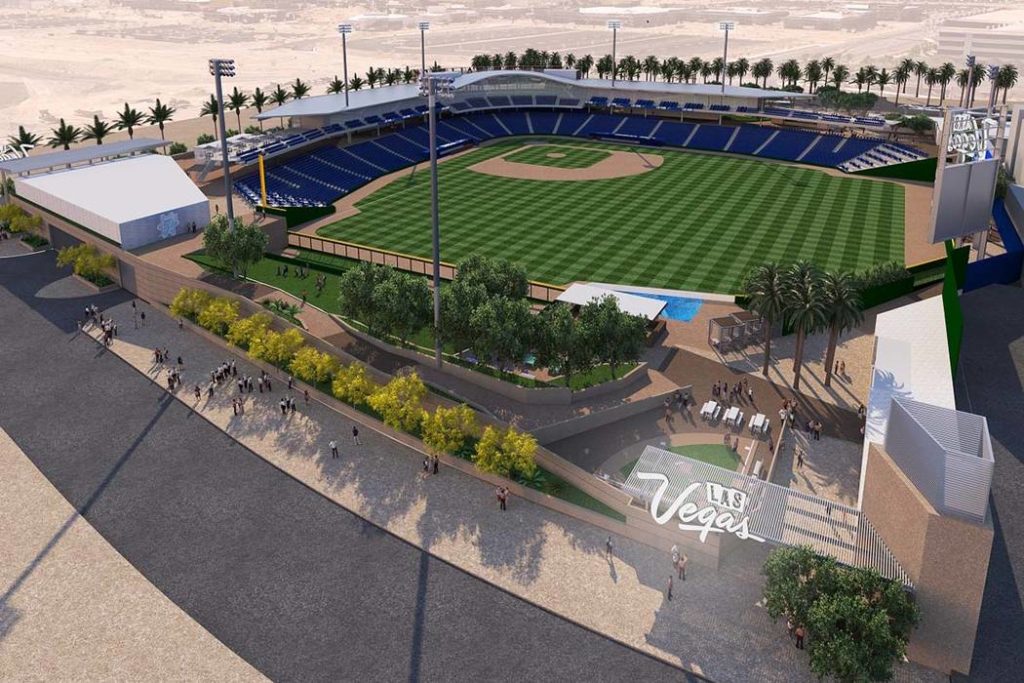The 2018 affiliation shuffle was one of the busiest in recent memory. Several Minor League Baseball teams entered into player development contracts (PDCs) with new Major League Baseball parent clubs, giving the affiliation landscape a different look going forward.
It was expected that the most recent affiliation cycle would be busy, particularly at the Triple-A and Low-A levels. That turned out to be the case, but with a few surprises and some activity in the Double-A ranks mixed in as well. Our Affiliate Dance page provides a full look at the current slate, but a complete listing of new affiliations for 2019 can be found below.
| Class AAA | Former MLB Team | New MLB Team | Status |
| Fresno | Astros | Nationals | Signed through 2020 |
| Las Vegas | Mets | Athletics | Signed through 2020 |
| Nashville | Athletics | Rangers | Signed through 2022 |
| Round Rock | Rangers | Astros | Signed through 2022 |
| Syracuse | Nationals | Mets | Owned by Mets |
| Class AA | Former MLB Team | New MLB Team | Status |
| Chattanooga | Twins | Reds | Signed through 2020 |
| Pensacola | Reds | Twins | Signed through 2020 |
| Low A | Former MLB Team | New MLB Team | Status |
| Clinton | Mariners | Marlins | Signed through 2020 |
| Greensboro | Marlins | Pirates | Signed through 2020 |
| West Virginia | Pirates | Mariners | Signed through 2020 |
At the Triple-A level, some shifts happened as expected. For instance, the Round Rock Express (Class AAA; Pacific Coast League) aligned with the Houston Astros, while the New York Mets’ ownership of the Syracuse Chiefs (Class AAA; International League) triggered the end of Syracuse’s time as a Washington Nationals’ affiliate. Perhaps the biggest surprise of the affiliation shuffle, however, was the new PDC between the Texas Rangers and Nashville Sounds (Class AAA; Pacific Coast League). It was anticipated that the Rangers would enter into an agreement with the San Antonio Missions (Class AAA; Pacific Coast League), but the Missions renewed with the Milwaukee Brewers—continuing an agreement that had been in place when the Missions franchise was in Colorado Springs.
Aside from the surprise in San Antonio, the Triple-A shuffle unfolded just about as expected. Perhaps most notably, a handful of MLB teams improved the proximity from their top MiLB club, as was the case with the Mets, Astros, and Oakland A’s, who entered into a new affiliation with the Las Vegas 51s (Class AAA; Pacific Coast League) a new ballpark (rendering shown above) is also a bonus for the A’s. The ripple effect of this, however, was that the Nationals and Fresno Grizzlies (Class AAA; Pacific Coast League) agreed to a PDC, making the Grizzlies an outlier in an organization that has all of its other MiLB affiliates on the east coast.
Several fairly long affiliations ended at the Low-A level, as the Clinton LumberKings (Low A; Midwest League) are now a farm club of the Miami Marlins after playing the 2009-2018 seasons as a Seattle Mariners affiliate. The Greensboro Grasshoppers (Low A; Sally League) ended their longtime affiliation with the Marlins and are now aligned with the Pittsburgh Pirates, while the Mariners are taking the Pirates’ place as the parent club of the West Virginia Power (Low A; Sally League).
The activity at Low-A is notable in that the Power will be the first South Atlantic League club to be affiliated with the Mariners in their history. Additionally, Greensboro parted ways with the Marlins after having been their Low-A affiliate since 2003 and seeing many notable players—including Giancarlo Stanton, Christian Yelich, and Marcell Ozuna—pass through Greensboro.
The small shuffle at the Double-A was marked by two Southern League clubs essentially swapping affiliates. For the Chattanooga Lookouts, this meant a reunion of sorts as they entered into a PDC with the Cincinnati Reds—their parent club from 1988-2008. The Minnesota Twins, meanwhile, will now shift their Double-A club to the Pensacola Blue Wahoos. The Twins get an immediate upgrades in terms of facility and a closer location to High-A Fort Myers, but the Reds are able to restart a tradition and put themselves in a position to be the parent of a future Lookouts club playing in a new ballpark if that plan comes together.
This article first appeared in the Ballpark Digest newsletter. Are you a subscriber? It’s free, and you’ll see features like this before they appear on the Web. Go here to subscribe to the Ballpark Digest newsletter.

